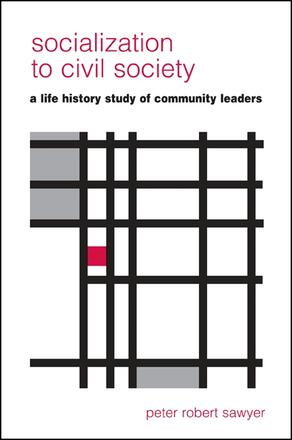
Socialization to Civil Society
A Life History Study of Community Leaders
Alternative formats available from:
Using a life history approach, looks at what influences citizens to participate in the voluntary associations that comprise and promote civil society.
Description
2005 CHOICE Outstanding Academic Title
While many political theorists argue that the problems and failures of American democracy are rooted in the decline of civil society, few examine how American institutions socialize citizens to participate in the voluntary associations that comprise civil society. Peter Robert Sawyer offers a life history approach to explore citizen involvement within one community in upstate New York. Sawyer's informants model enlightened self-interest and participate actively in their community's voluntary associations. Their life histories, revealed in rich narrative, tell us how they think about political life and how various agents of socialization—family, peers, school, church, community, media, workplace, and voluntary associations themselves—influence their commitment. The results of this study provide some interesting revelations about how to construct government, corporate, education, and family institutions to encourage civic participation and to maintain the overall health of civil society.
Peter Robert Sawyer is Department Chair of History, Philosophy, and Social Sciences at Hudson Valley Community College.